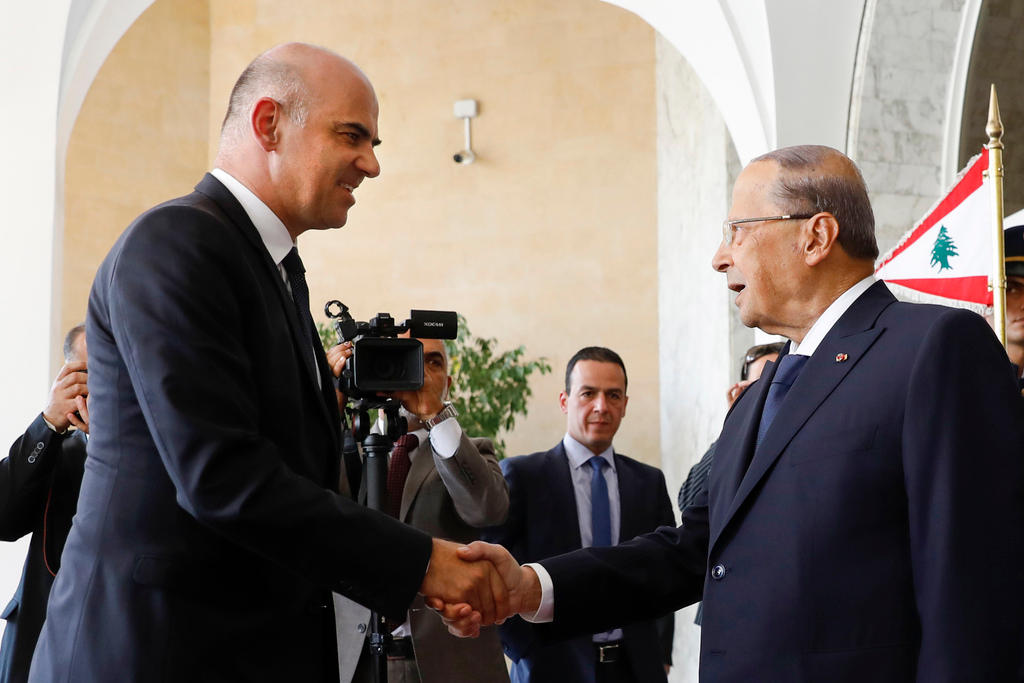
Swiss president calls for patience on Syrian refugees in Lebanon

Alain Berset began a two-day visit to Lebanon on Monday by meeting with political representatives and calling for patience when it comes to the return of the 1.3 million Syrian refugees currently in the state.
“The situation has evolved; but I don’t know if we can say that the war in Syria is over,” Berset said in Beirut, referring to recent diplomatic and military shifts in Lebanon’s neighbour, where civil war has raged since 2011.
“But of course, the question of what will happen to these people [Syrian refugees in Lebanon] will someday be asked,” he said.
Some 1.3 million Syrians have made Lebanon their temporary home since fighting broke out seven years ago, a disproportionate number (over a quarter of the Lebanese population) that has stretched stability and infrastructure in the Cedar State.
However, Lebanon must understand that the return of these refugees cannot be done in the current chaotic conditions and cannot be done immediately, Berset said. “A certain stability and clarity is necessary before these returns can be made,” he said, notably “a certain international and UN-led consensus”.
+ Read more about Swiss humanitarian aid expertise
As for Switzerland’s involvement, Berset said that it must help to “put in place, with the populations concerned, refugee return procedures under good conditions: voluntary, and in dignity.”
Asked about the possibility of Switzerland accepting new contingents of displaced Syrians, Berset declined to comment, stating that this had nothing to do with the issue at hand – the return of refugees across the Lebanese-Syrian border.
On this first day of his two-day visit, the Swiss president spoke with the three highest representatives of the Lebanese political system – president, prime minister, and speaker of the parliament – about the possibility of improving collaboration on migration and humanitarian aid.
On Tuesday Berset will spend time in a refugee camp, meet high-level representatives of Lebanon’s religious communities, and visit the museum of renowned poet Khalil Gibran.

In compliance with the JTI standards
More: SWI swissinfo.ch certified by the Journalism Trust Initiative

















![The four-metre-long painting "Sonntag der Bergbauern" [Sunday of the Mountain Farmers, 1923-24/26] had to be removed by a crane from the German Chancellery in Berlin for the exhibition in Bern.](https://www.swissinfo.ch/content/wp-content/uploads/sites/13/2025/12/01_Pressebild_KirchnerxKirchner.jpg?ver=a45b19f3)











You can find an overview of ongoing debates with our journalists here . Please join us!
If you want to start a conversation about a topic raised in this article or want to report factual errors, email us at english@swissinfo.ch.